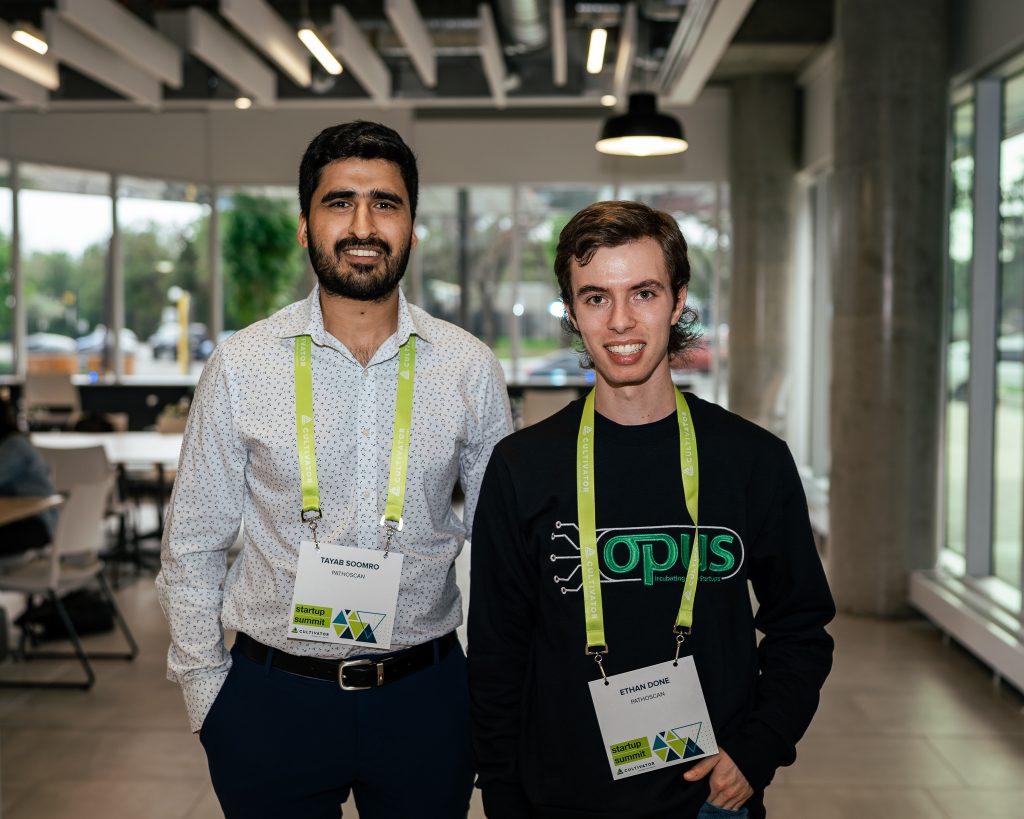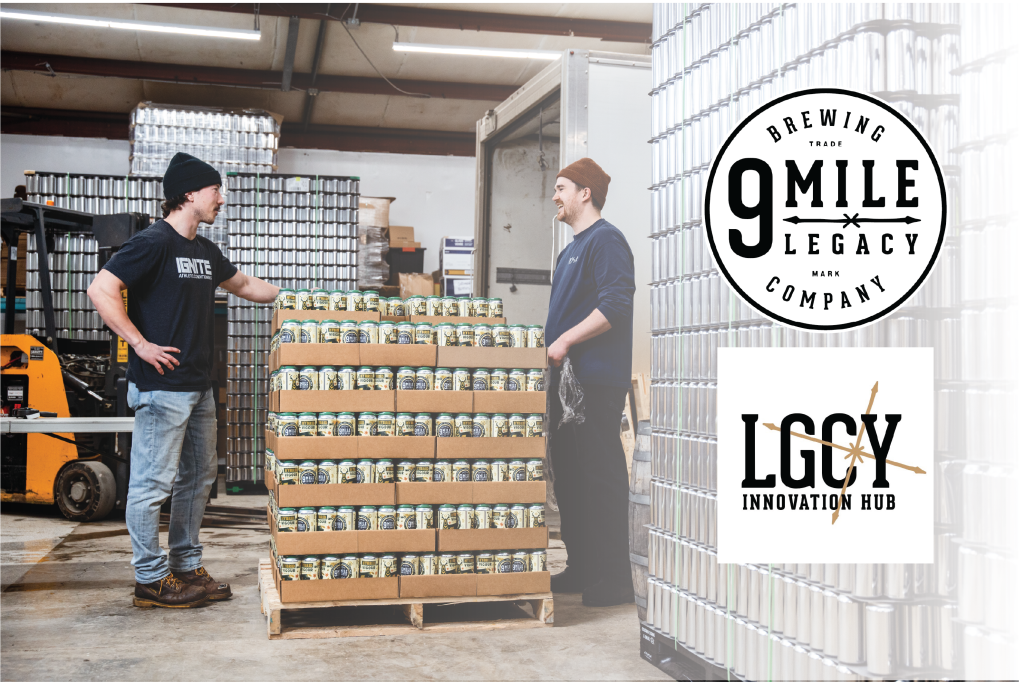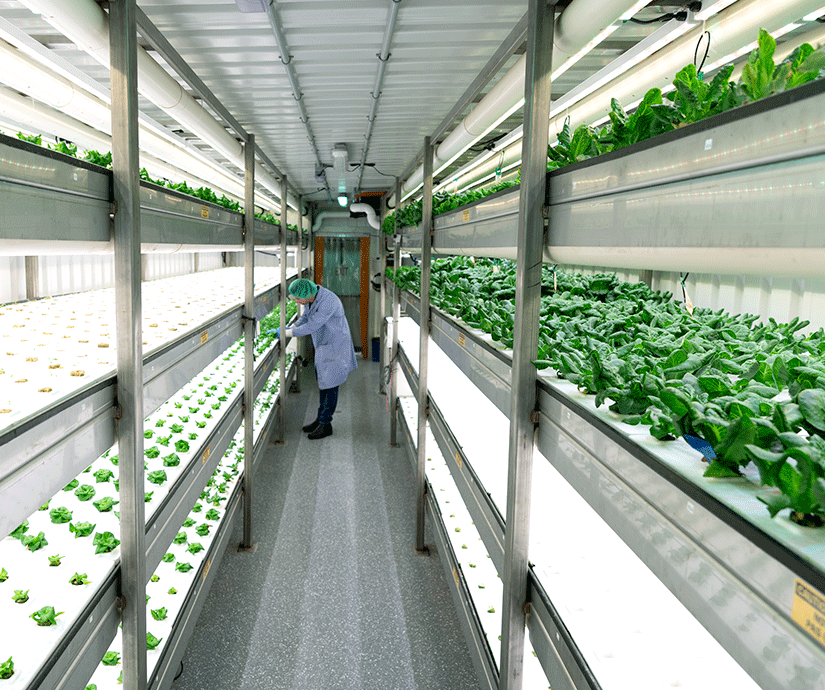In agriculture, timing is everything. A delayed diagnosis can mean the difference between saving a crop or losing it to disease. For years, farmers have faced long waits for lab results when testing for crop pathogens—a lag that often left them powerless to act in time.
That challenge sparked an idea in 2022, when Tayab Soomro and Ethan Done met at a hackathon. Just two years later, their company PathoScan has completed multiple field trials in Saskatchewan but now are excited to expands trials across Canada.
“Currently, if farmers want to test for crop pathogens, they have to send samples to a lab,” explains Soomro, PathoScan co-founder. “That can mean waiting anywhere from three days to three weeks. By the time results come back, it’s often too late to treat the disease.”
PathoScan’s solution is the PathoBox—a portable diagnostic tool designed to bring real-time testing directly to the farm. Roughly the size of a lunchbox, the PathoBox allows farmers to test their crops in the field with just a few simple steps. Each kit comes with eight tests: farmers take a petal or plant sample, place it in a tube, and within a short time receive clear results on the presence and quantity of a pathogen.
At the core of the PathoBox is PCR (polymerase chain reaction) technology, the same process used in medical testing to detect viruses and bacteria. Traditionally, PCR machines are large, lab-bound, and expensive. PathoScan’s innovation was in making the technology compact, affordable, and rugged enough for on-farm use—without sacrificing accuracy.
“It was about finding the balance,” says Soomro. “We had to shrink down the system so it could be portable but still deliver results that farmers could trust and act on.”
For the past two years, PathoScan has worked directly with farmers to validate and refine the PathoBox. These real-world trials have been crucial—not only for improving the technology, but also for demonstrating its value in the day-to-day operations of a farm.
Soomro says, “The primary benefit is timely results and that increase yields and lower yield losses and, you know, improve general prosperity in the farm.” The company is also exploring opportunities to work with ag-retailers as a business-to-business model.
PathoScan is grateful to have a partner like Ag-West Bio. “They’ve been with us since early on,” says Soomro. “It wasn’t just about funding—though that was critical—it was also the coaching, the introductions, and the opportunities to grow our customer base through events. Their investment director has been a huge help in guiding our journey.”
The next stage for PathoScan is scaling validation efforts nationwide. Over the coming year, the company will conduct trials across Canada to test the technology in diverse climates and cropping systems.
“We’re really excited about the trials we’re going to do across Canada,” says Soomro. “It will be a strong check on how well the technology performs. We already have partners lined up who are eager to test, and that enthusiasm is energizing for us.”
While crop disease diagnostics are PathoScan’s immediate focus, the founders see broader applications for their platform. PCR technology can be adapted to detect a wide range of pathogens—not just in plants, but potentially in many other avenues.
In just two years, PathoScan has moved from a hackathon concept to a validated tool poised for national rollout validation. By addressing one of agriculture’s most pressing challenges—the delay in disease diagnosis—Soomro and Done have created a technology that is simple, portable, and powerful.
For farmers, that means clarity where there was once uncertainty. For PathoScan, it’s just the beginning.


